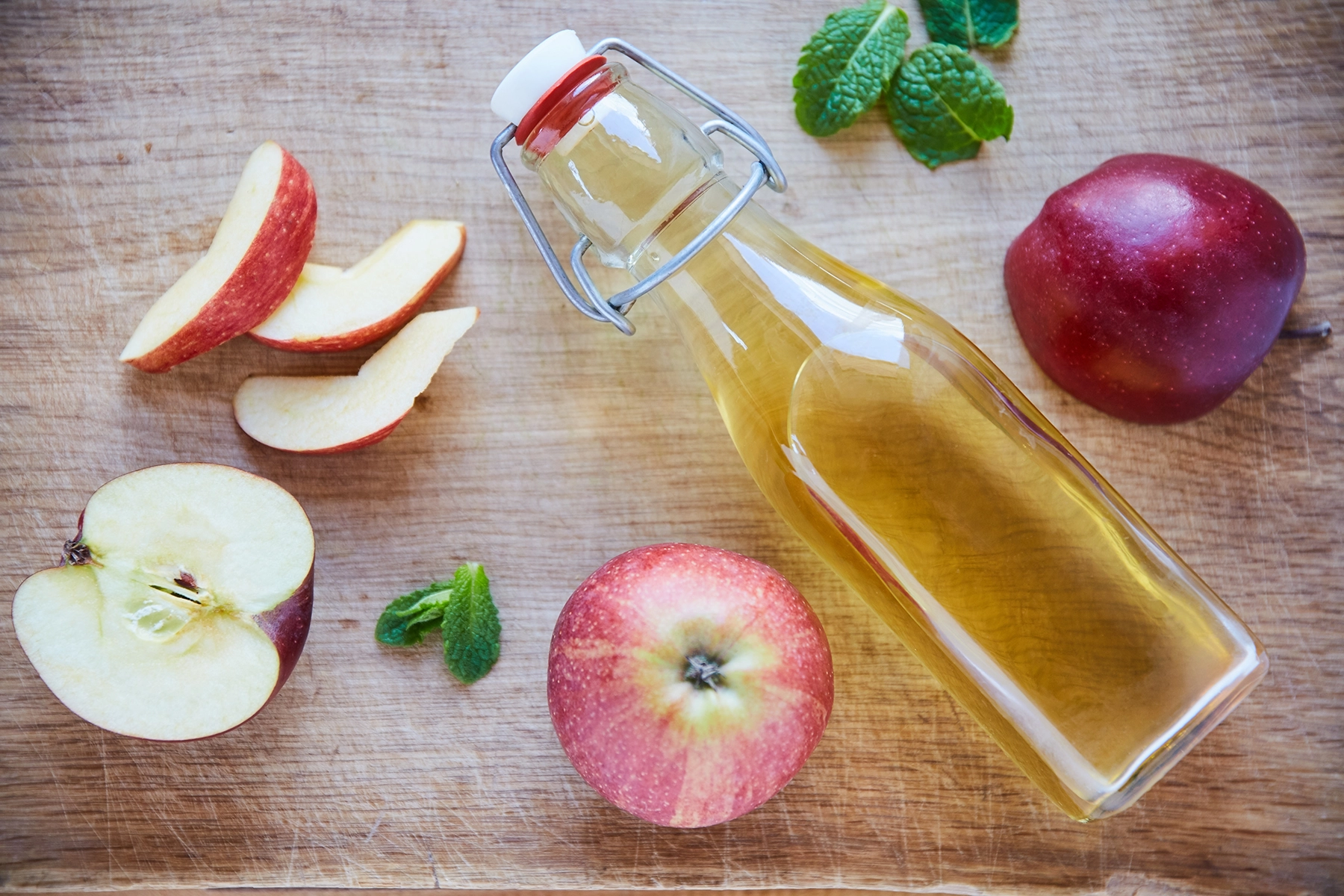What You Should Know Before Drinking Apple Cider Vinegar

There are many claims about the health benefits of consuming vinegar, especially apple cider vinegar. This tangy, pungent liquid is tied to weight loss promises. It is said to help with everything from reducing the risks of cancer, diabetes, and heart disease to clearing eczema flare-ups, reducing acid reflux, and controlling dandruff. But, research findings are limited, and consuming too much vinegar has risks.
5 reasons to drink vinegar
Apple cider vinegar is generally safe to drink in moderation (when sufficiently diluted with water) and to add to foods, as it is made of only fermented apples. Other types of vinegar, including red wine, white, and rice vinegar, share many of its properties and health benefits, while balsamic vinegar contains more added sugars.
- Darker vinegars are generally less refined than lighter vinegars and may retain more of their natural, plant-based antioxidants (called polyphenols).
- The ”mother” present in many apple cider vinegar bottles is a clump of yeast and bacteria that provides probiotics that promote healthy gut bacteria. It’s similar to the probiotic source found in kombucha drinks.
- Vinegar may contain some important dietary minerals, including potassium, magnesium, calcium, phosphorus, and B vitamins.
- Studies show that drinking apple cider vinegar has a significant positive effect in controlling blood glucose and lowering bad cholesterol levels in people with type 2 diabetes.
- There is considerable evidence that drinking two tablespoons of apple cider vinegar immediately before meals may lower blood glucose levels over time and help reduce blood sugar spikes. Why this works is not fully understood, but a delay in gastric emptying, among other factors, may play a protective role.
Vinegar is not a cure-all and not right for everyone.
The research on drinking vinegar, including apple cider vinegar, has yielded mixed results. Some studies tout its benefits, while others are inconclusive or conclude there are minimal benefits. Anecdotal accounts make big claims, but more research is needed to determine vinegar’s true potential and how much you should take (and for how long) to experience the best results without side effects.
We know that vinegar is highly acidic, so it can irritate your esophagus if you have gastroesophageal disease, drink it undiluted or consume too much at once. The acidity can also erode your tooth enamel. You can reduce these risks by adding it to food in dressings, marinades, and sauces or sufficiently diluting drinking vinegar with water and rinsing out your mouth afterward.
Vinegar may trigger indigestion or nausea, so don’t drink it on an empty stomach.
Some drugs, such as diuretics, laxatives and insulin, may interact with vinegar if consumed in large amounts, contributing to low potassium levels. Ask your doctor if it’s safe to drink apple cider vinegar on a daily basis while taking your current medications.
If you have low potassium levels (hypokalemia), too much apple cider vinegar could worsen the condition because large amounts can further reduce potassium levels.
People with kidney disease might not be able to process high levels of acid, so they should avoid taking large doses of vinegar.
While including more vinegar in your diet may help reduce blood sugar spikes, it cannot cure diabetes nor replace the need for insulin and disease management care.
There are rumors that apple cider vinegar can be used to control blood pressure and help prevent heart disease. There’s simply not enough data to support these claims.
It’s true that vinegar has antibacterial and antifungal properties, which makes it a good household cleaning product on hard surfaces. However, this property does not make drinking vinegar a safe or effective way to fight bacterial or viral infections.
Is drinking apple cider vinegar a good choice for you?
In moderation and with proper dilution, drinking apple cider vinegar seems to be a relatively safe and well-tolerated dietary addition. But it can’t replace a well-balanced diet full of colorful vegetables and lean proteins, plus daily physical activity. It makes a tasty salad dressing, though.
Dana Kantrowitz is a contributing writer for UHealth’s news service. Medically reviewed by Federika Garcia, M.S., RDN, LDN, CNSC, Clinical Nutrition Manager – Oncology Nutrition, with Sylvester Comprehensive Cancer Center, part of the University of Miami Health System.
Tags: Federika Garcia, gastric health, gut health, nutrition care in Miami
